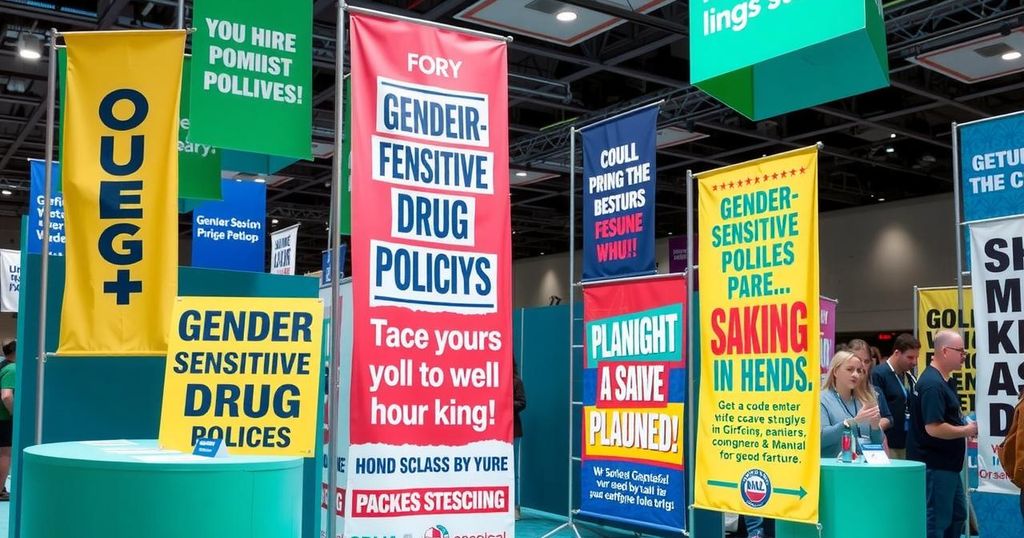Kenya Advocates for Gender-Sensitive Drug Policies at Global Forum
Kenya is committed to gender-sensitive drug policies, advocating for tailored interventions that recognize the unique challenges of men and women. During a recent global forum, Dr. Stephen Mairori highlighted the need for inclusive treatment options and announced new initiatives, including free rehabilitation services for women, to enhance accessibility. The country aims to implement collaborative strategies to address gender disparities in drug policies effectively.
Kenya has expressed its dedication to implementing gender-sensitive approaches in drug policies to effectively address the unique challenges encountered by both men and women. During the 2025 Commission on Narcotic Drugs (CND) meeting in Vienna, Dr. Stephen Mairori, the Board Chair and Head of the Kenyan Delegation, emphasized the significance of gender-responsive measures in drug control.
Dr. Mairori acknowledged the contrasting patterns of drug use between genders, highlighting that the repercussions of substance abuse are often more pronounced for women. He urged the adaptation of existing rehabilitation frameworks to accommodate these gender disparities, enhancing treatment accessibility and effectiveness.
In recognition of women’s distinct needs—such as pregnancy, childcare, and safety concerns—he advocated for targeted interventions, including the establishment of women-only rehabilitation centers. Kenya has recently revised its National Drug Control Policy to incorporate these gender-sensitive strategies, addressing the obstacles women encounter in obtaining treatment.
In a step towards supporting women, Dr. Mairori announced that NACADA has introduced free rehabilitation services for women at the Miritini Drug Rehabilitation Centre in Mombasa. This initiative aims to encourage female participation in treatment programs by eliminating financial barriers while working with local governments and stakeholders to create gender-specific prevention and rehabilitation programs.
Dr. Mairori stressed the need for ongoing dialogue among policymakers, researchers, and practitioners to integrate global best practices into national strategies. He called upon nations to adhere to international guidelines on gender-sensitive drug policies and to cultivate partnerships for enhanced program efficiency.
The panel session, co-sponsored by the United Nations Office on Drugs and Crime (UNODC) and the Norwegian government, provided a forum for experts to explore practical methods for addressing gender disparities in drug policies. Dr. Mairori concluded by underscoring the importance of inclusivity in drug control efforts, advocating for the formation of networks and collaboration to meet the diverse needs of individuals affected by substance abuse.
In summary, Kenya is leading the charge for gender-sensitive drug policies by recognizing the unique challenges faced by women in substance abuse. With initiatives such as free rehabilitation services and the revision of its National Drug Control Policy, the country aims to improve treatment accessibility and address gender disparities. Continuous collaboration among stakeholders is essential to ensure effective implementation of these policies and to create a more inclusive approach to drug control.
Original Source: www.capitalfm.co.ke




Post Comment